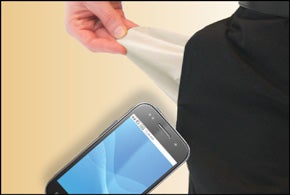
When an Employee Loses a Work Phone
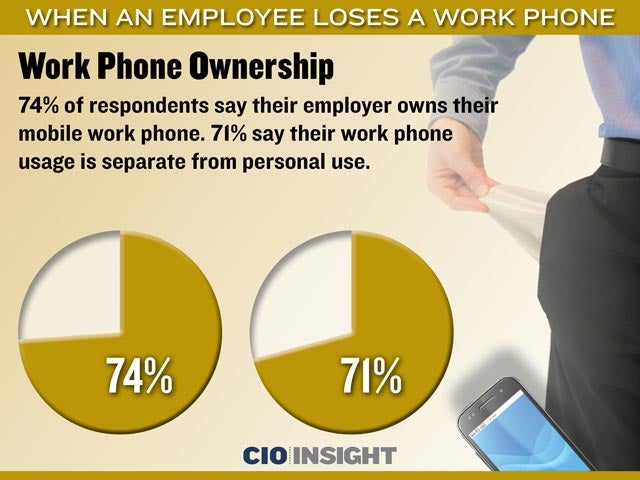 Work Phone Ownership
Work Phone Ownership
74% of respondents say their employer owns their mobile work phone. 71% say their work phone usage is separate from personal use.
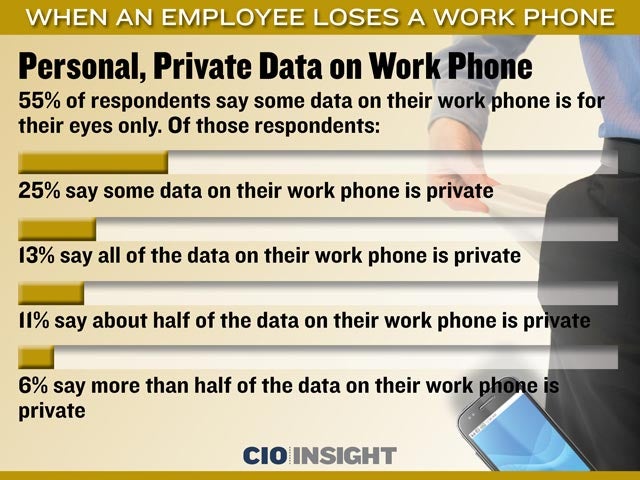 Personal, Private Data on Work Phone
Personal, Private Data on Work Phone
55% of respondents say some data on their work phone is for their eyes only. Of those respondents: 25% say some data on their work phone is private, 13% say all of the data on their work phone is private , 11% say about half of the data on their work phone is private, 6% say more than half of the data on their work phone is private
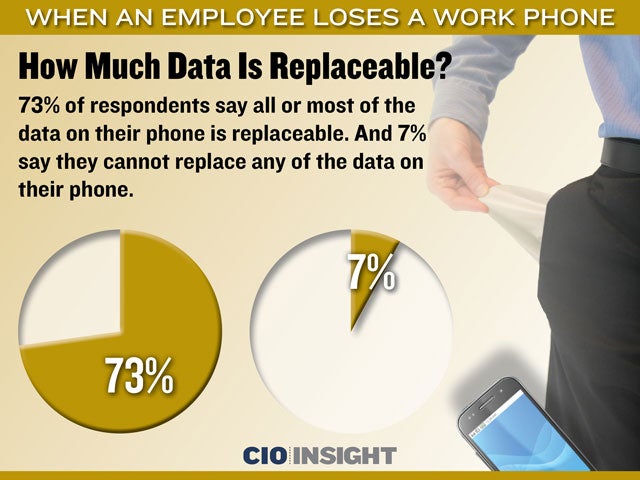 How Much Data Is Replaceable?
How Much Data Is Replaceable?
73% of respondents say all or most of the data on their phone is replaceable. And 7% say they cannot replace any of the data on their phone
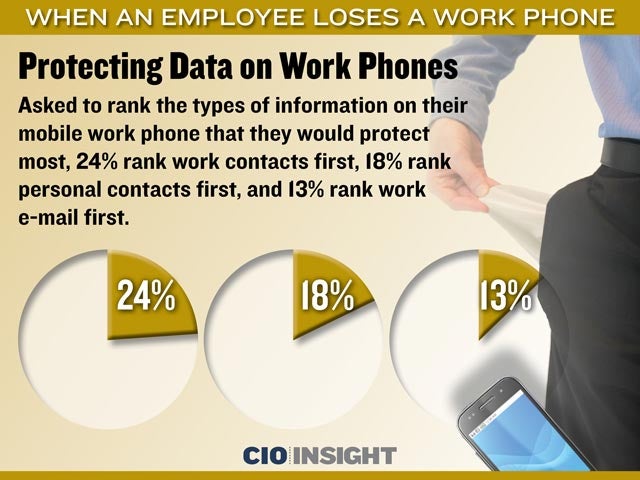 Protecting Data on Work Phones
Protecting Data on Work Phones
Asked to rank the types of information on their mobile work phone that they would protect most, 24% rank work contacts first, 18% rank personal contacts first, and 13% rank work e-mail first.
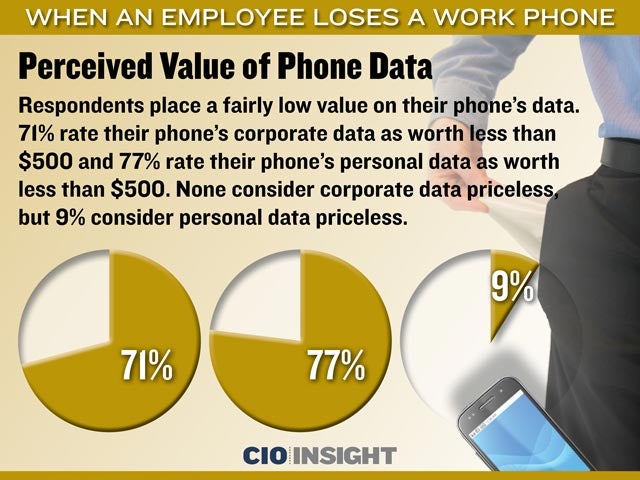 Perceived Value of Phone Data
Perceived Value of Phone Data
Respondents place a fairly low value on their phone’s data. 71% rate their phone’s corporate data as worth less than $500 and 77% rate their phone’s personal data as worth less than $500. None consider corporate data priceless, but 9% consider personal data priceless.
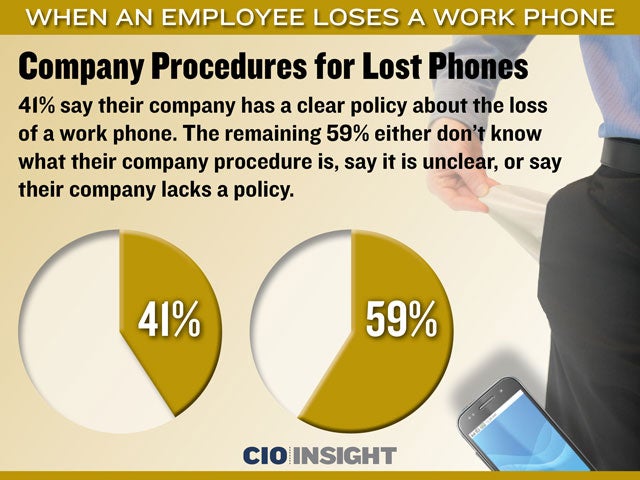 Company Procedures for Lost Phones
Company Procedures for Lost Phones
41% say their company has a clear policy about the loss of a work phone. The remaining 59% either don’t know what their company procedure is, say it is unclear, or say their company lacks a policy.
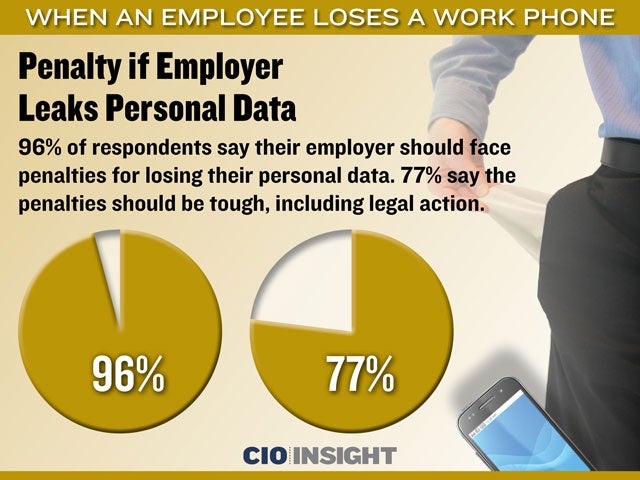 Penalty if Employer Leaks Personal Data
Penalty if Employer Leaks Personal Data
96% of respondents say their employer should face penalties for losing their personal data. 77% say the penalties should be tough, including legal action.
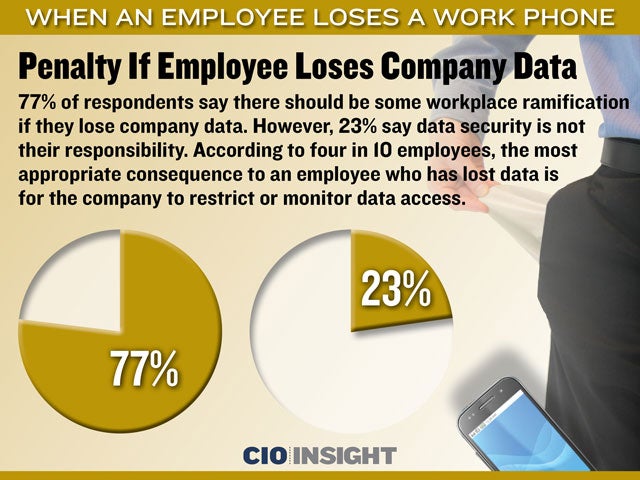 Penalty If Employee Loses Company Data
Penalty If Employee Loses Company Data
77% of respondents say there should be some workplace ramification if they lose company data. However, 23% say data security is not their responsibility. According to four in 10 employees, the most appropriate consequence to an employee who has lost data is for the company to restrict or monitor data access.
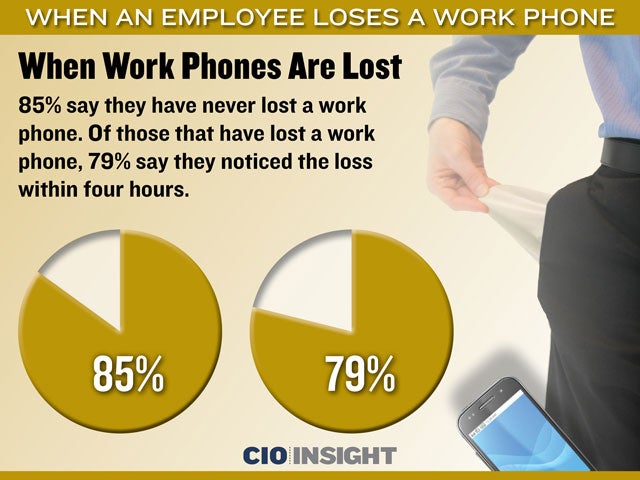 When Work Phones Are Lost
When Work Phones Are Lost
85% say they have never lost a work phone. Of those that have lost a work phone, 79% say they noticed the loss within four hours.
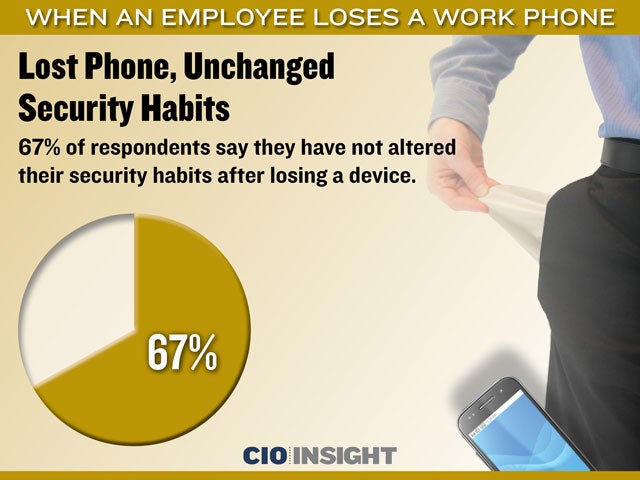 Lost Phone, Unchanged Security Habits
Lost Phone, Unchanged Security Habits
67% of respondents say they have not altered their security habits after losing a device.